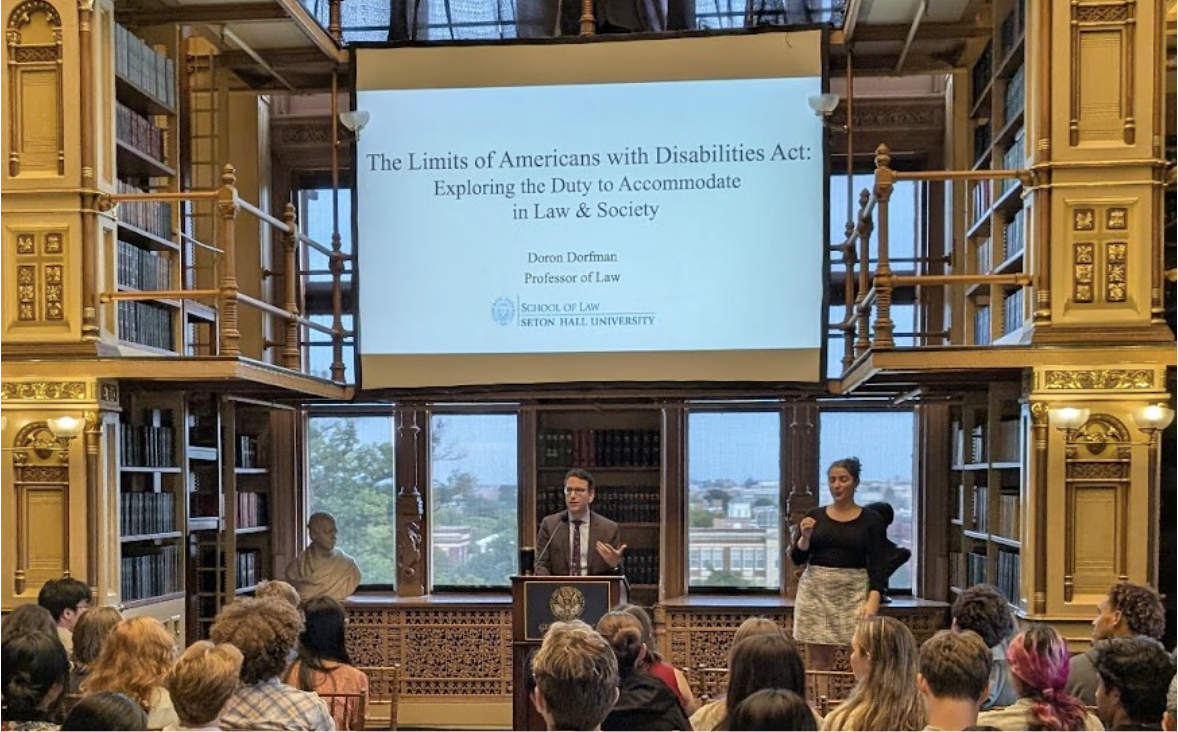Activists, artists and researchers outlined key strategies for addressing systemic injustices in climate change mitigation and response at a virtual panel event titled “Racism, Colonialism, and Climate Change: Uncovering Injustices in Impacts and Responses,” hosted by the O’Neill Institute for National and Global Health Law Oct. 24.
Panelists analyzed how colonialism and racism cause delays in climate action, which exacerbate health inequities for countries in the Global South and minority communities in the United States. The event was moderated by Dr. Renzo Guinto, associate professor of global and planetary health at the Duke-National University of Singapore Medical School in Singapore and member of the O’Neill-Lancet Commission.
Guinto said that interdisciplinary events that incorporate perspectives from marginalized groups help challenge traditional structures of power in global health.
“The global health community is still dominated by certain sources of power. It’s characterized by asymmetries in power, which then lead to inequalities and injustices in health,” Guinto said. “But today we are going to look at the intersection between racism, colonialism and health inequality with the climate crisis, which is perhaps the biggest existential threat we are facing now as a human civilization.”
In November, climate change leaders are expected to negotiate climate action agreements in Baku, Azerbaijan as part of the 2024 United Nations Climate Change Conference (COP29). This year’s conference will focus on ways to make it easier for developing countries to fund climate action.
According to Guinto, previous global climate goals and mitigation strategies have not compensated for factors such as colonialism and racism.
“This coming COP, like in the COPs of recent years, there are two main outcomes that we still want to see: dramatic reduction in greenhouse gas emissions, especially among rich countries, and substantial financing to support poor countries for adaptation and now to compensate for what we call ‘loss and damage,’” Guinto wrote to The Hoya. “These goals remain elusive primarily because we are stuck in our racist and neocolonial political, social and economic systems.”
Panelist Mita Huq, a researcher at the Institute for Global Health at University College London, explained that countries in the Global North have yet to take an equal share of responsibility in combating climate change.
“Although the Global North makes up only 14% of the world’s population, it was responsible for 92% of excess carbon dioxide emissions from 1850 to 2015,” Huq said at the event.
Susana Almanza, panelist and director of nonprofit organization PODER, highlighted the integral role of community organization in bringing climate justice to the United States. Notably, after discovering that Tank Farm, a series of fuel storage tank facilities located in a predominantly Latine and Black neighborhood in eastern Austin, violated air emissions and contaminated the groundwater, PODER led a campaign that resulted in the relocation of Tank Farm in 1993.
Almanza celebrated the campaign as one of many showing the power of grassroots climate organizing.
“This campaign was done with a $2000 grant, and we were able to kick the ass of multibillion dollar corporations in our community,” Almanza said.
According to Huq, under-resourced healthcare infrastructure in formerly colonized nations may not be able to adapt and respond to the challenges associated with climate change.
“The resources of the health system and its capacities to adapt to climate change in formerly colonized nations is limited, which contributes to a disproportionate burden of deaths in the Global South. Barriers to health such as legal status or affordability are amplified, and this is especially pertinent to migrants, even in traditional communities,” Huq said.
Huq further explained that institutional bias has motivated decisions to locate sources of pollutants and toxins closer to marginalized communities, increasing the risk of exposure to health-harming environmental factors for these communities.
“Institutions and systems expose minoritized communities to a higher proximity and exposure to pollution and toxins produced by fossil fuels, and intersecting forms of oppression including disability, gender, socioeconomic status, these all kind of come together and form a medley of harms,” Huq said.
Another speaker at the event was Elizabeth Koroivulaono, director and producer of “The Forgotten Pacific,” a documentary that shows indigenous communities across five Pacific Islands fighting to save their islands from climate change.
Koroivulaono hopes her documentary can bring underrepresented stories of climate activism to light.
“It highlights the crisis that is happening, but also what the grassroots community is doing, and it shows the world that they are not standing by waiting for things to change,” Koroivulaono said at the event.
The event concluded with a collective brainstorm on how to promote antiracist and decolonial approaches to climate policy and governance.
Jessica Kritz, director of the Initiative on Health and Peace and assistant professor in the department of global health at Georgetown University, shared the university’s mission to train students to incorporate justice into their careers.
“Part of what we’re doing in the School of Health is ensuring that we’re centering justice as part of our education across the curriculum, and Georgetown is doing this as well, so that when students get into professional school, they already have what we would call the right lens so they can interrogate their education with the lens of a person who’s educated about social justice,” Kritz told The Hoya.
Kritz stressed the need to center justice in creating evidence-informed, cross-sectoral solutions for climate change.
“We’re not seeking justice in order to cross our fingers and hope that the world gets better,” Kritz said. “If we don’t actually center justice, we’re going to fail anyway.”





